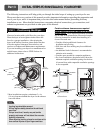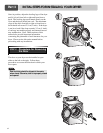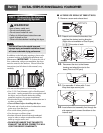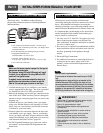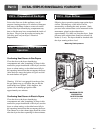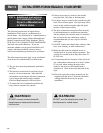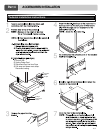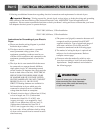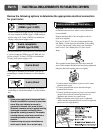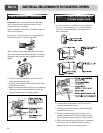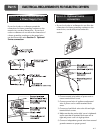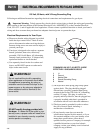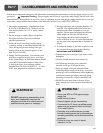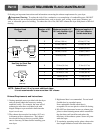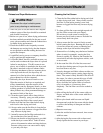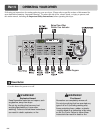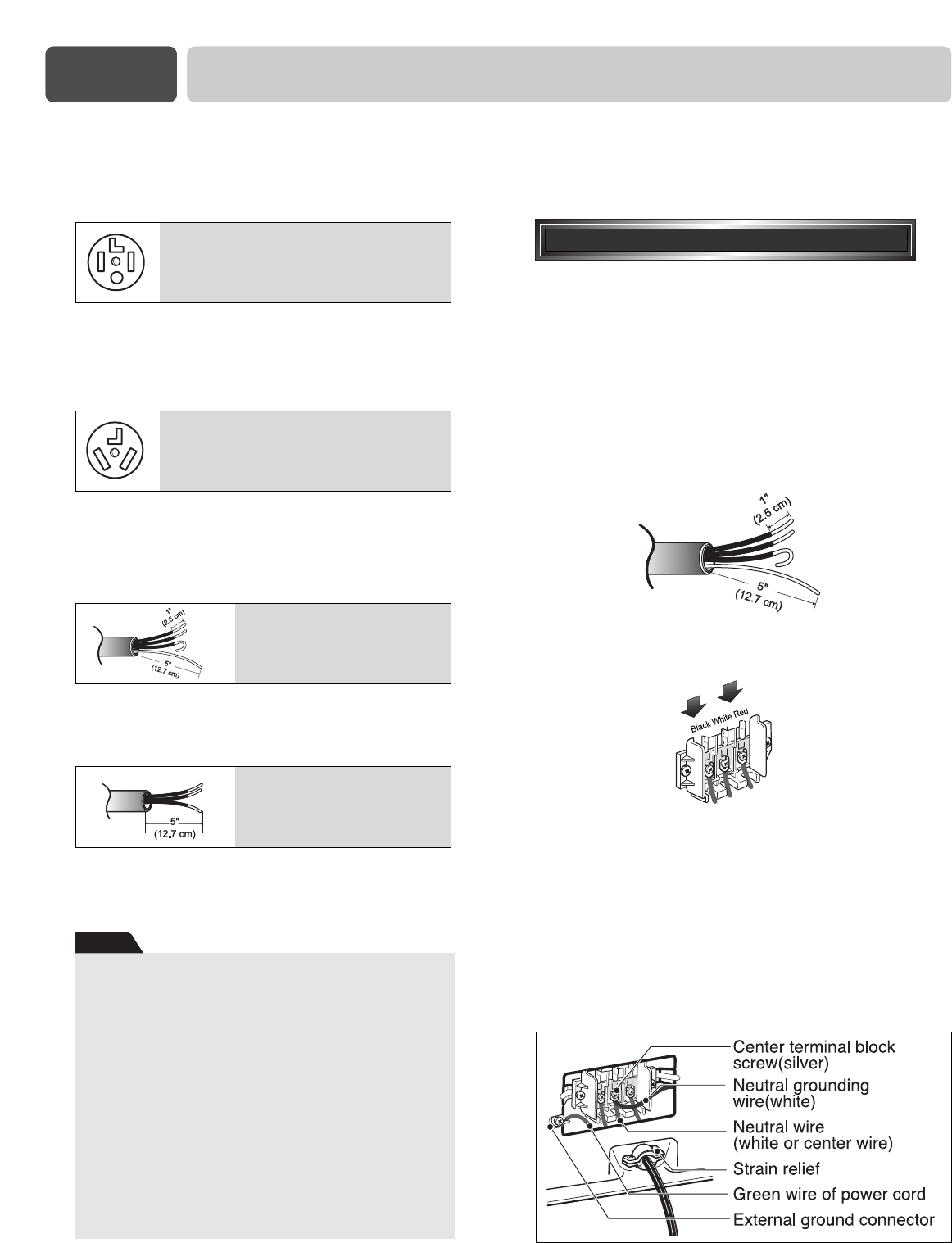
15
Part 5 ELECTRICAL REQUIREMENTS FOR ELECTRIC DRYERS
Use the instructions at this section if your home has
a 3-wire receptacle (NEMA type 10-30R) and you
will be using a UL listed, 120/240 volt minimum,
30 amp, dryer power supply cord.
Review the following options to determine the appropriate electrical connection
for your home:
If this type is available at your home. you will be
connecting to a fused disconnect or circuit breaker
box
Important : use 4-wire connection in the places such
as mobile homes and areas where 3-wire connections
is not available.
Prepare minimum 5ft(1.52m) of length in order for
dryer to be replaced.
First, peel 5 inch (12.7cm) of covering material from
end. Make a 5 inch of ground wire bared. After cutting
1
1
/2 inch (3.8cm) from 3 other wires. peel insulation
back 1inch (2.5cm). Make ends of 3 wires a hook
shape.
Then, put the hooked shape end of the wire under the
screw of the terminal block(hooked end facing rightward)
and pinch the hook together and screw tightly.
Use the instructions at this section if your home has
a 4-wire receptacle (NEMA type 14-30R) and you
will be using a UL listed, 120/240 volt minimum,
30 amp, dryer power supply cord.
If this type is available at your home. you will be
connecting to a fused disconnect or circuit breaker
box
1. Connect neutral wire(white) of power cord to center
terminal block screw.
2. Connect red and black wire to the left and right
terminal block screws.
3. Connect ground wire(green) of power cord to external
ground screw and move neutral ground wire of
appliance and connect it to center screw.
4. Make sure that the strain relief screw is tightened.
and be sure that all terminal block nuts are on tight and
power cord is in right position.
3-wire direct
4-wire receptacle
(NEMA type14-30R)
3-wire receptacle
(NEMA type10-30R)
4-wire direct
4-wire connection : Direct wire
• Screw power supply wire to the terminal block.
Colored wire should be connected to same color
screw. Wire color indicated on manual is
connected to the same color screw in block.
Otherwise, excessive current is applied resulting
in damages on product and heating failure.
• Appropriate screwing is essential. Imcomplete
screwing also may cause loose connection or
unscrewing because of excessive screw
abrasion.
• Loose screwing may cause connection error,
which result in death, fire or serious injury.
Note



